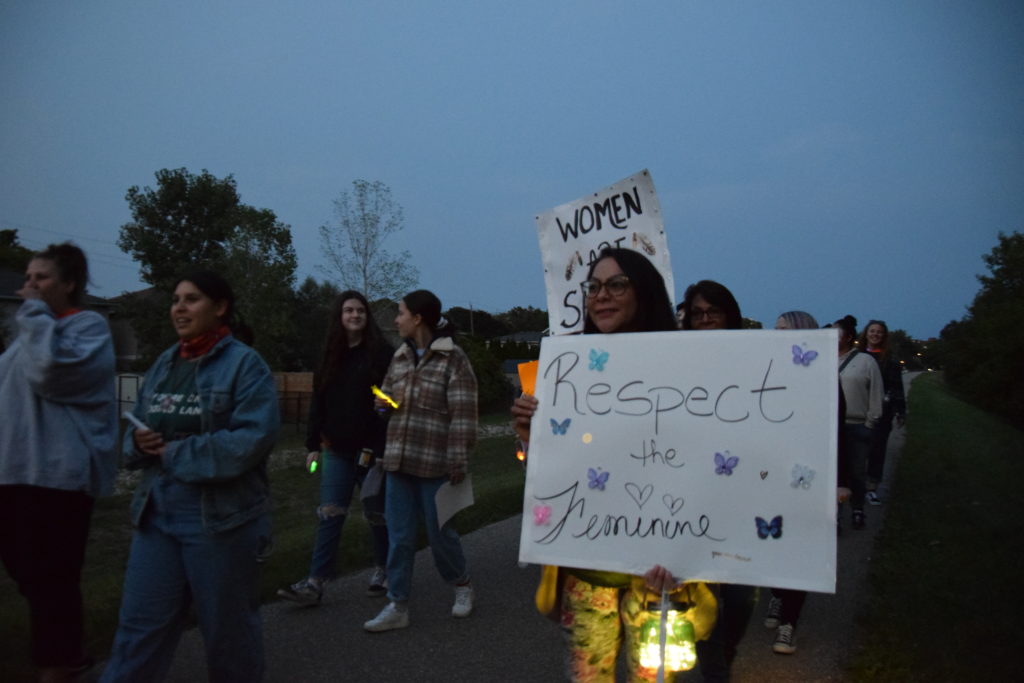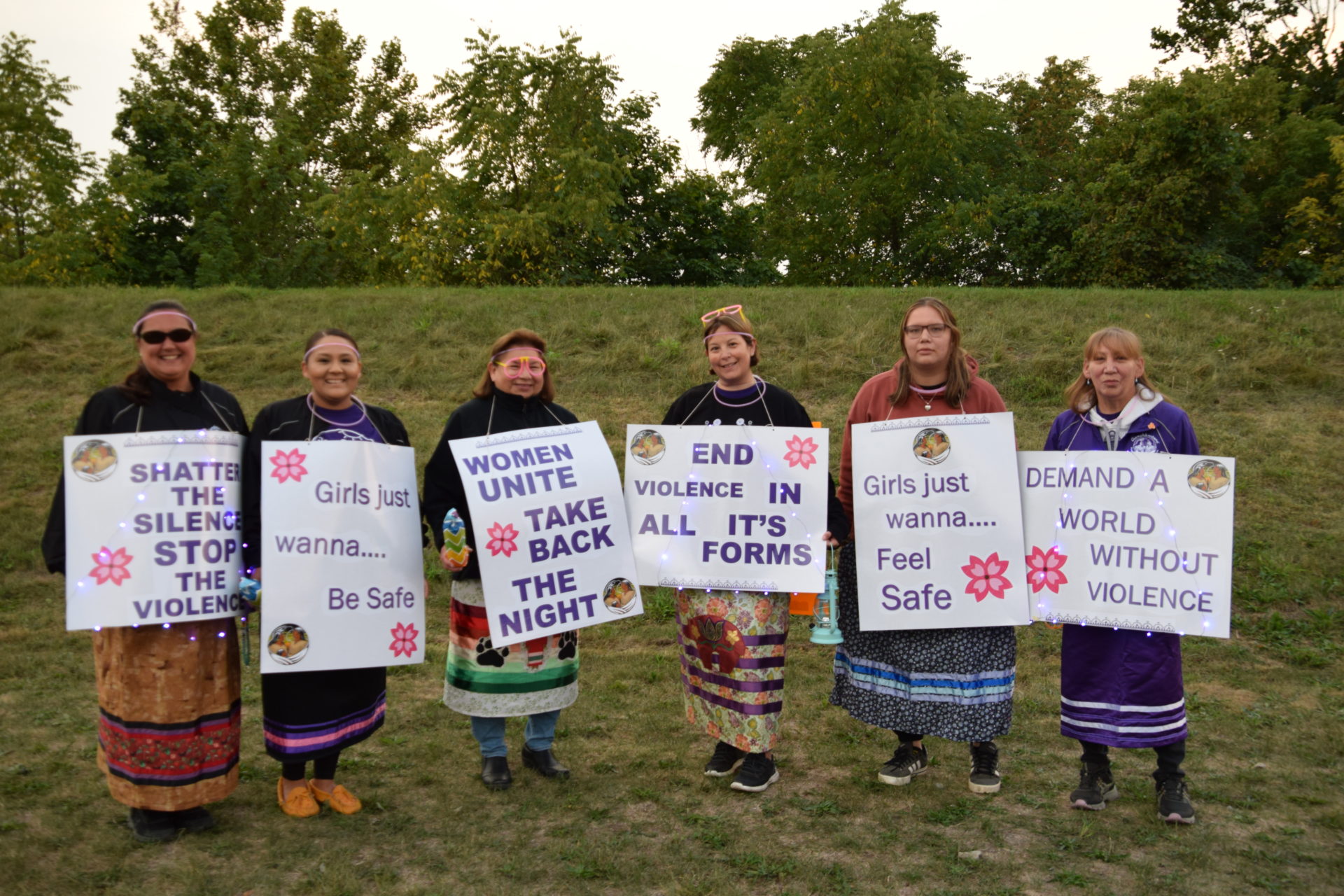Over 50 people attended Take Back the Night on the Brantford trails, starting on the corner of Church Street and Grand River Avenue on Thursday, September 15, 2022.
This was the first Take Back the Night since the COVID-19 pandemic began. As the protest began, participants gathered around a sacred fire to give thanks to the earth.
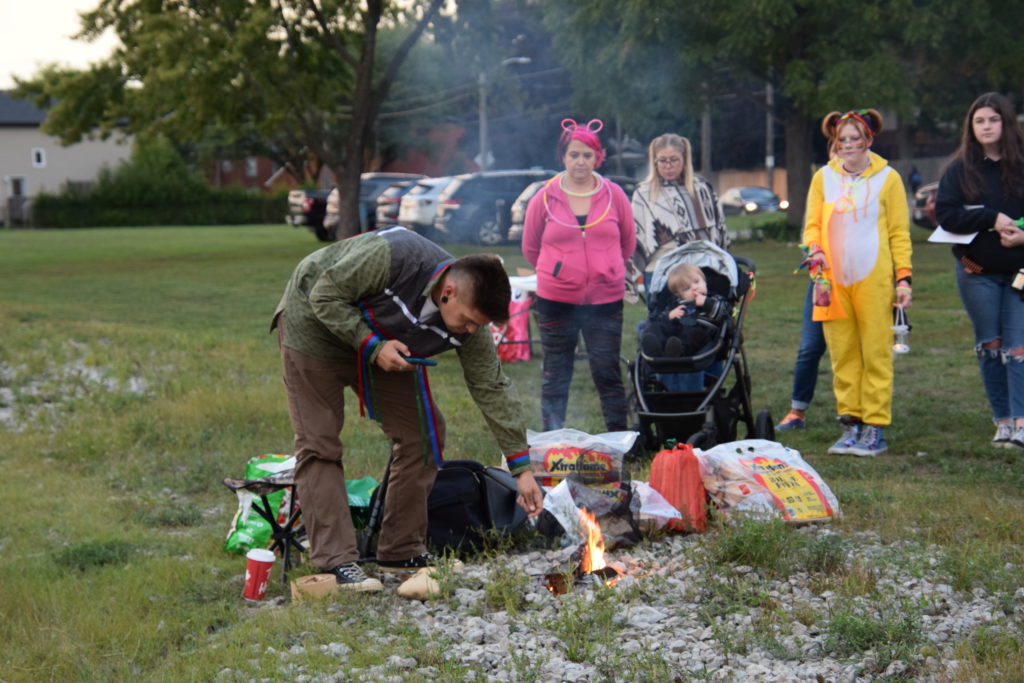
“It was amazing, the community coming together, with Indigenous and non-Indigenous peoples on the banks of the Grand River and I hope others felt as empowered as I did. I just hope people know that we have power in our voices and we have power in the community. Taking this step ensures that when we come together, we are stronger as a group and stronger in numbers, and that we can create the future we are all seeking as long as we build this kinship and community,” said Serena Mendizabál, a 23-year-old member of Cayuga Wolf Panamanian and a guest speaker at the protest.
As a result of the community support, participants felt less isolated in their struggles.
“I love community support. There’s quite a few people here, which is fantastic. And I think it’s a worthwhile cause,” said Caroline Donachy, a participant in the event.
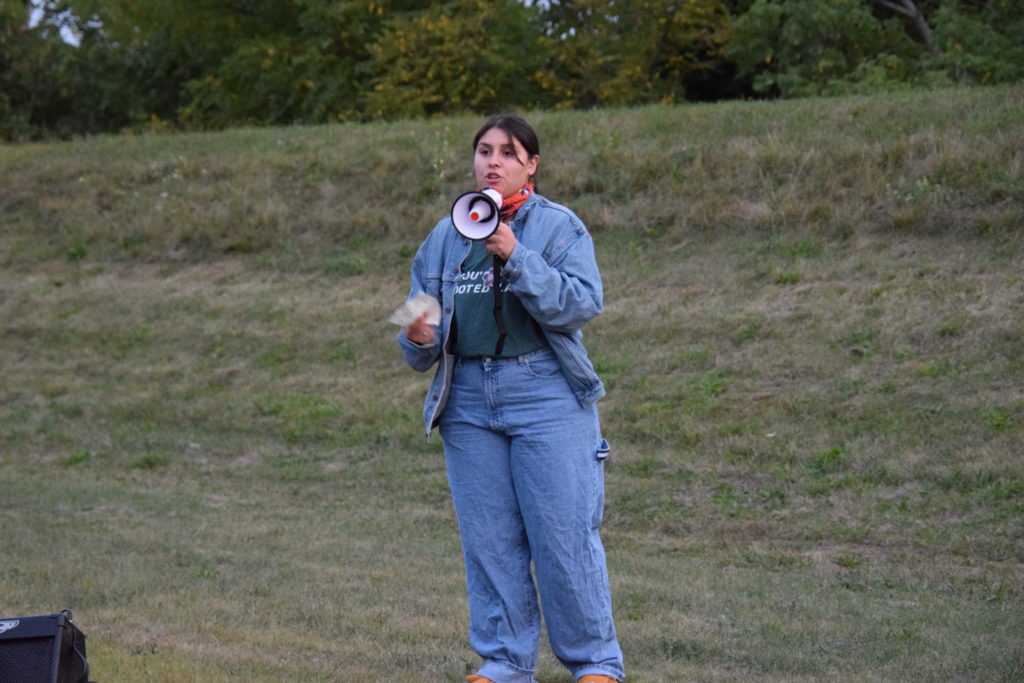
This year’s Take Back the Night was not only about gender and sexual violence, it was also about Indigenous and land violence.
“We do this because as Indigenous peoples on these lands, we just want to be autonomous and sovereign, to be able to be who we are. And I think that’s the same for all people at Take Back the Night, right? We want to be safe, we want to have safe spaces that focus on our well being and collective care. We want to create these shared futures of safety and love among us all,” said Mendizabál. “We’re dealing with a lot of dominance, white supremacy, and patriarchy. All our issues are linked back to the same structures that have been in place. A lot of it comes from colonialism, capitalism, and so we have a lot of the same root issues to face when we talk about all these other intersectional problems that we’re facing in our communities. We all have the same fight, when it comes down to looking at what are these root structures. We need to radically rethink the kinds of futures we want to live.”
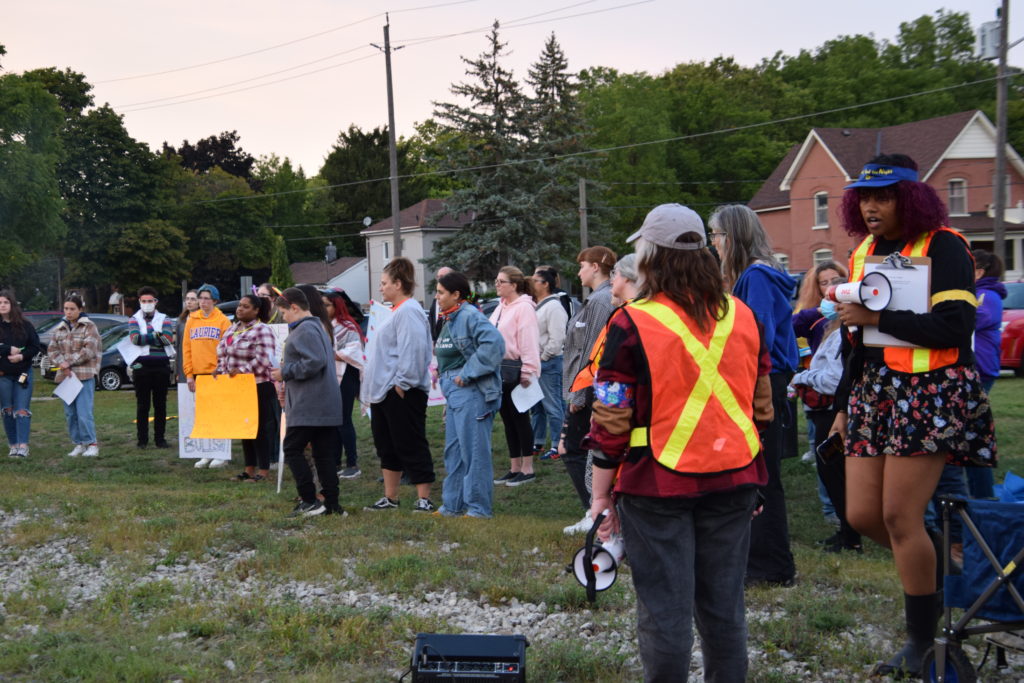
Participants marched down the trails along the Grand River, making an effort to take up space, make noise, and light up their path.
Communities are negatively impacted by gender, sexual, and land violence and the protest encouraged people to stand up for their communities’ safety.
“It’s empowering to be with this group of women in particular, it just seems even more powerful,” said Jennifer Macdonald, a participant in the protest.
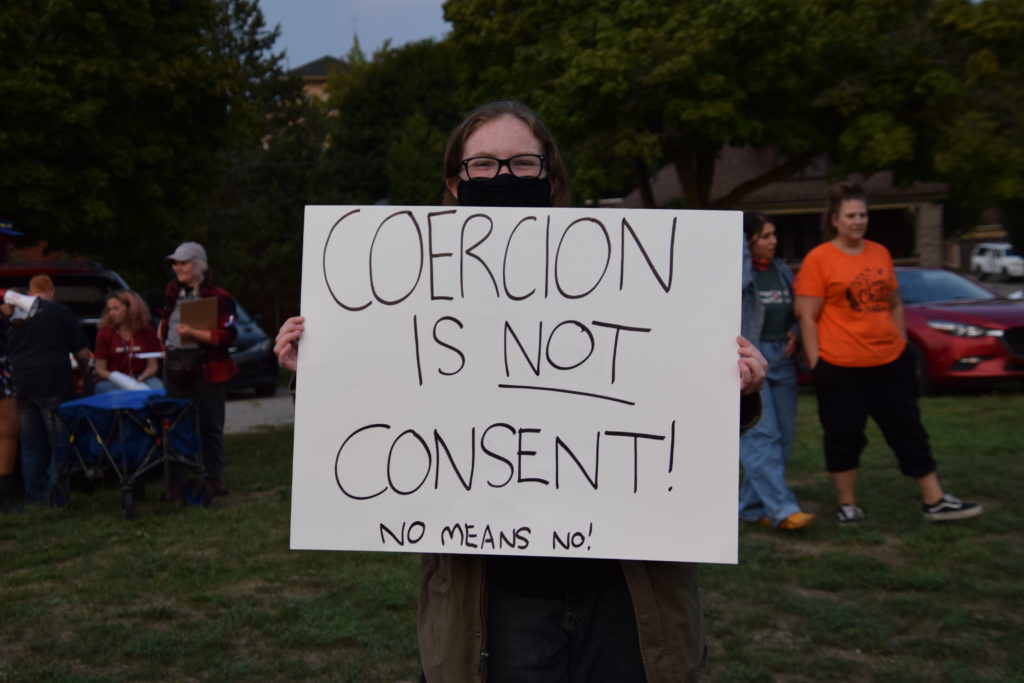
Organizers led participants through various chants, creating a powerful sense of community.
“I hope they have a sense of community and know that they’re not alone, because we’re a sexual assault center. There are a lot of folks here that are survivors of sexual violence and are advocates for people that have been sexually abused. So people finding community here and finding their power, hearing their voice, it’s incredible. And on a broader scale, I hope we kind of rattle some people and really say, hey, look, we’re here. This isn’t okay. We’re not going to go away. Let’s bring attention to all the violence that’s happening and fix the system,” said Annaliesha Jamieson, a counsellor at the Sexual Assault Centre of Brant and one of the organizers of the event.
Under an overpass along the trail, participants spread messages of empowerment with chalk.
“People should be able to feel safe in society, but due to patriarchy, sexism, racism, homophobia, and so on, it is impossible. When we talk about colonialism, white supremacy, patriarchy, and capitalism, they’re all tied in one. And it’s not just about walking safely at night, right? It’s about how sexual violence is pervasive. It harms a lot of people,” said Jamieson.
